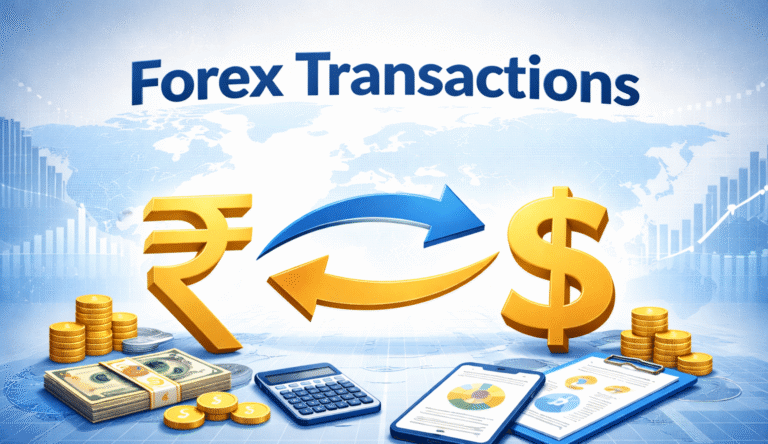Forex Card vs International Debit Card: What’s Best?
When preparing for an international trip, one of the most important decisions is how you’ll manage your travel expenses abroad. Choosing between a forex card vs international debit card can significantly impact how much you spend, how secure your transactions are, and how conveniently you can access your funds. In this guide, we break down both options so you can travel smart and stress-free.
Understanding Forex Cards and International Debit Cards
When preparing for international travel, choosing the right payment method is crucial. Two of the most commonly used options are forex cards and international debit cards. While both can be used abroad, they work differently and serve different purposes. Understanding their features will help you make the right choice for your journey.
When comparing a forex card vs debit card, the forex card often stands out for its fixed exchange rate, enhanced security, and lower charges for ATM withdrawals abroad. However, a debit card can be useful for emergency access to your funds if your forex card is lost or the balance runs out.
What Is a Forex Card?
A forex card is a prepaid card loaded with foreign currency, ideal for international travel. It is not linked to a bank account and allows you to lock in the exchange rate when loading funds.
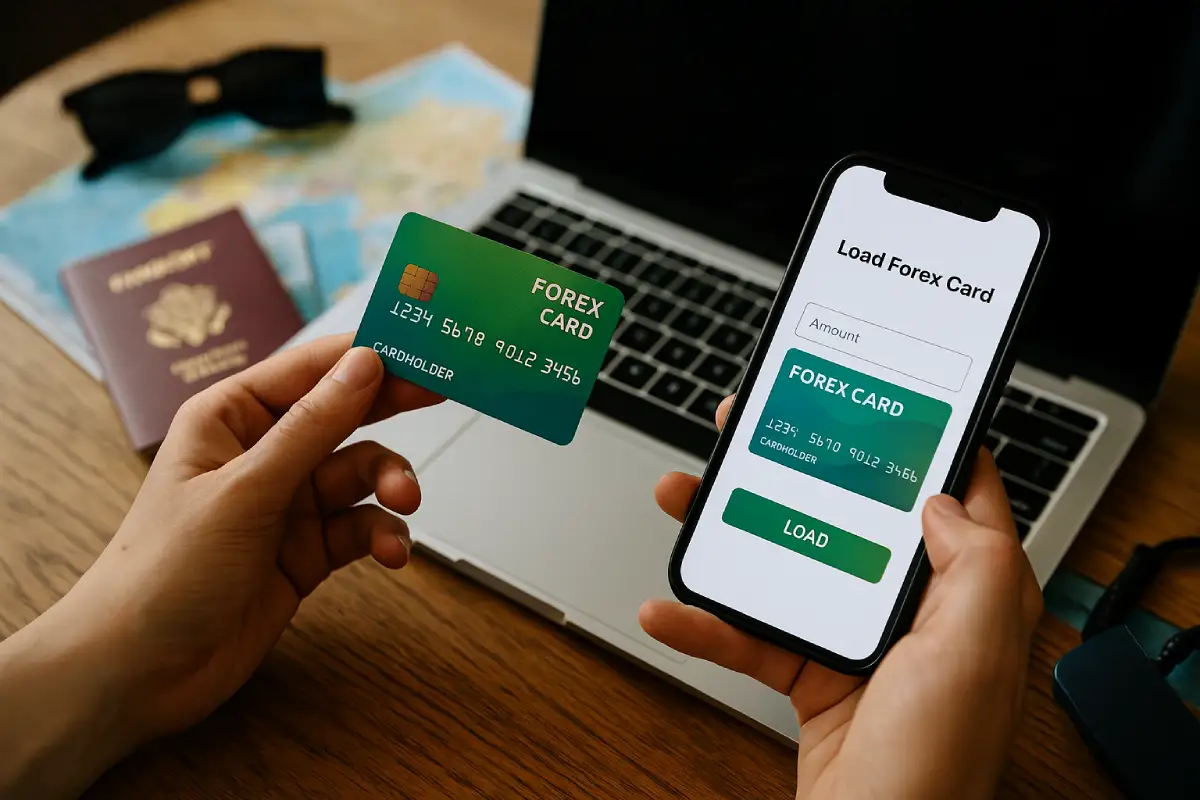
Key Highlights:
- Load single or multiple currencies in advance
- A locked exchange rate shields you from market swings
- Not connected to your savings account
- Safer for international use
If you want to know more about forex card, check out this blog What Is a Forex Card? Your Ultimate Guide to Hassle-Free Global Travel
What Is an International Debit Card?
An international debit card is directly linked to your bank account and works overseas by converting INR to the local currency at the current exchange rate.
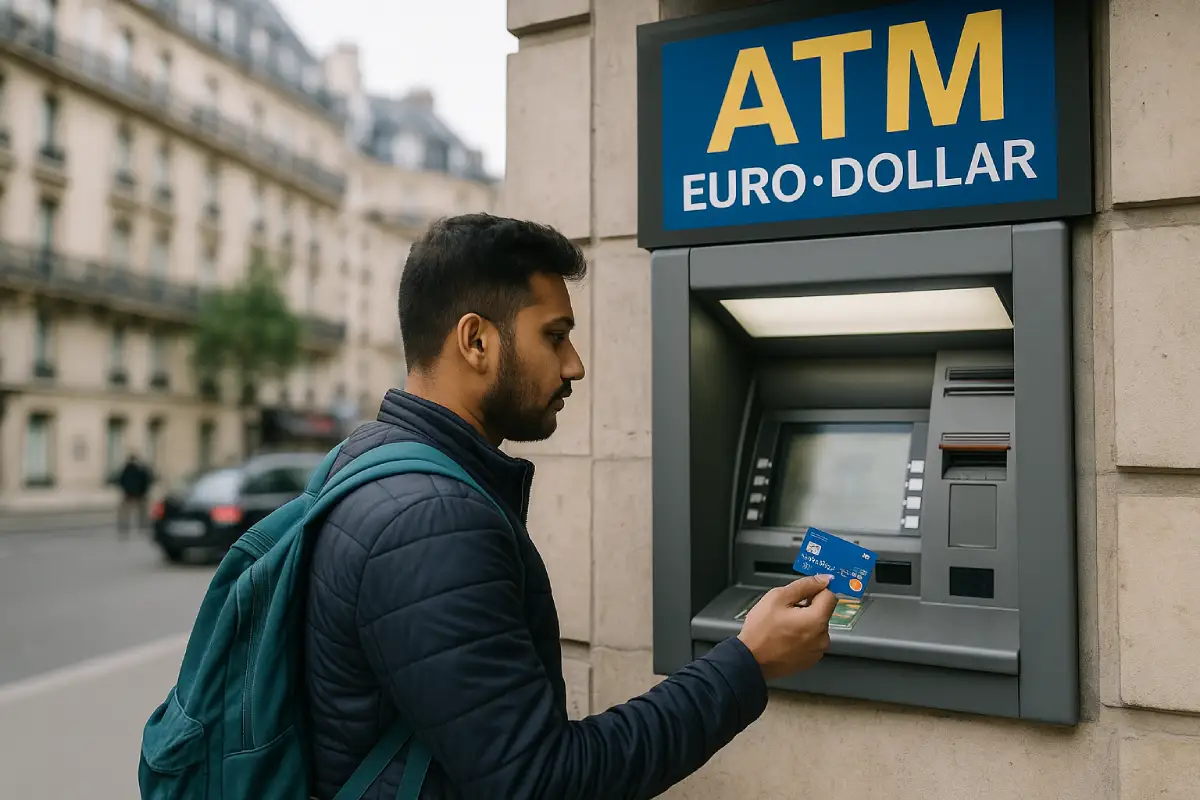
Key Highlights:
- Linked to your main savings account
- Requires activation for international use
- Currency conversion happens at the time of the transaction
- Accepted widely at ATMs and retail points
Difference between forex card and international debit card
Here we compare major aspects to show the pros and cons of both cards in real-world travel scenarios.
| Feature | Forex Card | International Debit Card |
| Exchange Rate Stability | Locked at time of loading; shields from market volatility | Varies with market rate at time of transaction |
| Security & Risk | Not linked to a savings account; safer for travel | Linked to your bank account; higher fraud exposure |
| Transaction Fees | Low ATM fees; minimal or zero currency markup | Up to 3% markup; ₹400–₹500 per ATM withdrawal |
| Global Acceptance | Accepted in most cities; may face limitations in remote areas | Widely accepted globally |
| Reloading & Monitoring | Online reload available; real-time spending tracking | No reload feature; limited tracking tools |
| Multi-Currency Support | Supports multiple foreign currencies on one card | Only INR-based, converted at the time of each use |
| Best Use Case | Ideal for students, frequent travelers, and multi-country trips | Good for occasional or short-term travelers |
Why Forex Cards Are Ideal for Travel
Forex cards shine in many areas when it comes to international travel. Here’s what makes them a smart pick.
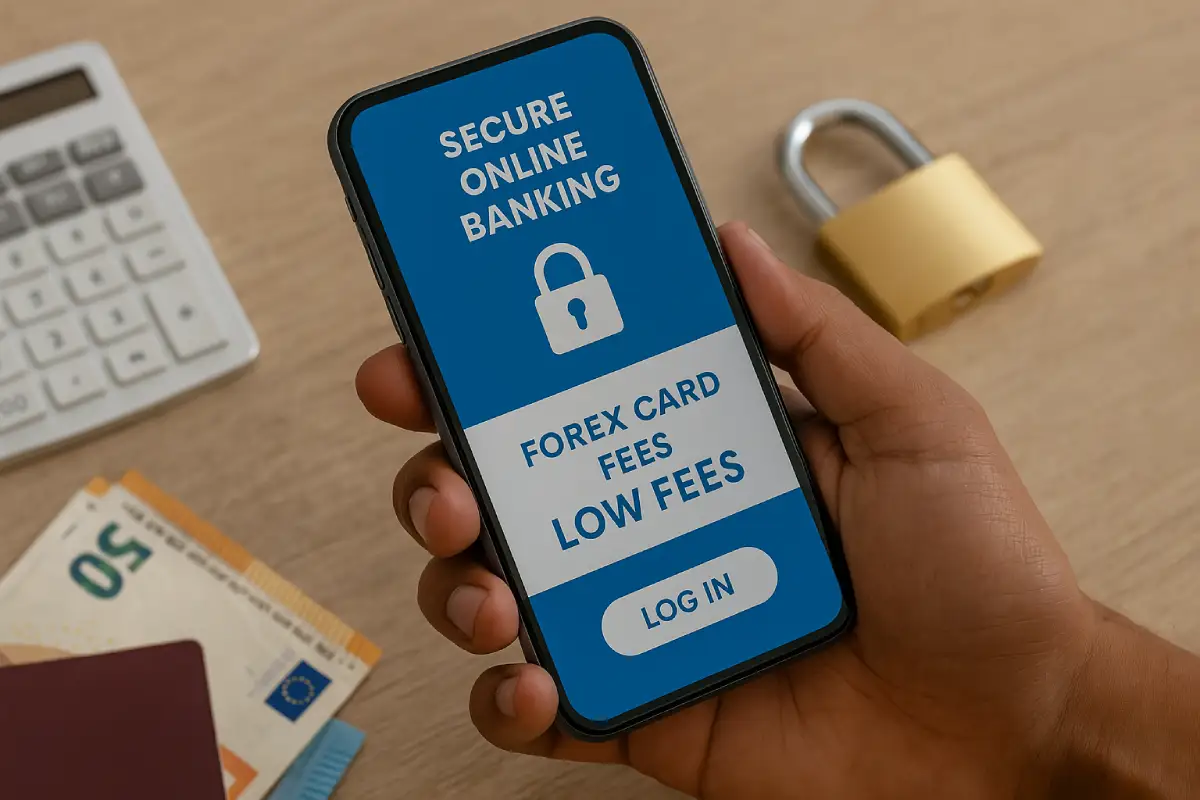
Summary: Great for frequent flyers and students, forex cards offer security, cost-efficiency, and real-time tracking.
- Fixed Exchange Rates: Lock in favorable rates before your trip.
- Multi-Currency Support: Travel across countries without changing cards.
- Enhanced Security: Less exposure to bank account fraud.
- Low Fees: No markup and minimal ATM withdrawal charges.
- Mobile Access: Instant transaction alerts and spending insights.
When International Debit Cards Make Sense
While forex cards are ideal in most scenarios, international debit cards also serve specific needs well.
Summary: Occasional travelers may prefer international debit cards for their convenience and ease of use.
- No Pre-Loading Required: Use funds directly from your bank.
- Widespread Acceptance: Works almost everywhere.
- Familiar Use: No need to learn new systems.
- Backup Plan: Useful when forex card funds are exhausted.
Which Card Should You Choose?
The forex card vs international debit card debate often comes down to purpose and personal comfort. Forex cards are ideal for planned spending with better exchange rates, while debit cards offer flexibility in emergencies.
Choose a Forex Card If You Are:
- A student studying abroad
- A frequent traveler crossing multiple countries
- Someone who values budget control and low fees
Choose an International Debit Card If You Are:
- A short-term or one-time traveler
- Visiting one or two destinations with wide card acceptance
- Comfortable with minor currency fluctuations and charges
Real Travel Scenarios: Card Choice in Action
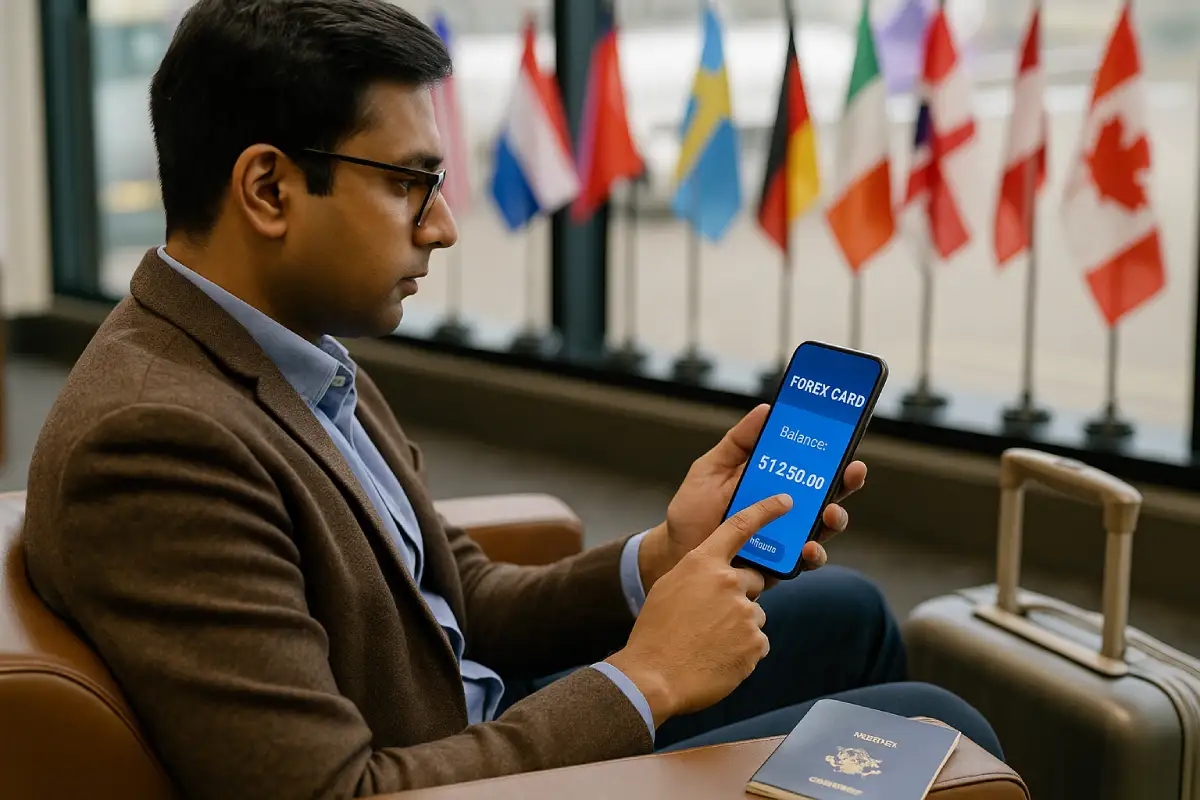
Scenario 1: You’re going on a European trip covering France, Italy, and Germany. A forex card vs debit card comparison favors the forex card due to multi-currency functionality.
Scenario 2: You’re visiting Singapore for 3 days for a conference. Your HDFC international debit card vs forex card decision may lean toward the debit card if you already have it activated for global use.
FAQs: Common Questions Travelers Ask
Can I use a Forex Card for online purchases abroad?
Yes, as long as you shop in the currency loaded on your card.
Are Forex Cards safer than debit cards?
Yes, they offer enhanced protection since they’re not linked to your savings account.
Are HDFC international debit card fees high?
Yes, expect up to 3% foreign transaction fee and ₹500+ ATM withdrawal charges per use.
Which is better to carry while traveling – a forex card vs cash?
A forex card is better for most travel needs. It’s safer than carrying a lot of cash, lets you lock in exchange rates, and is easy to use at shops or ATMs. You can still carry some cash for small things, but a forex card is more secure and convenient.
Conclusion: Forex Card or Debit Card?
When weighing an international debit card vs forex card, the forex card generally offers better value, stronger security, and flexibility. It’s especially useful for long stays and multiple destinations. The international debit card, while convenient, comes with higher fees and limited tracking.
Pro Tip: Carry both! Use your forex card as the primary tool and keep your debit card as a backup for emergencies.
Start Your Journey with Savi Forex
Choosing the right travel card doesn’t have to be complicated. At Savi Forex, we simplify your experience with cost-effective and secure travel money solutions. Our multi-currency forex card is designed for global travelers, offering locked-in exchange rates, low fees, and 24/7 reload support. Whether you’re planning a vacation, studying abroad, or managing overseas expenses, we’ve got you covered.
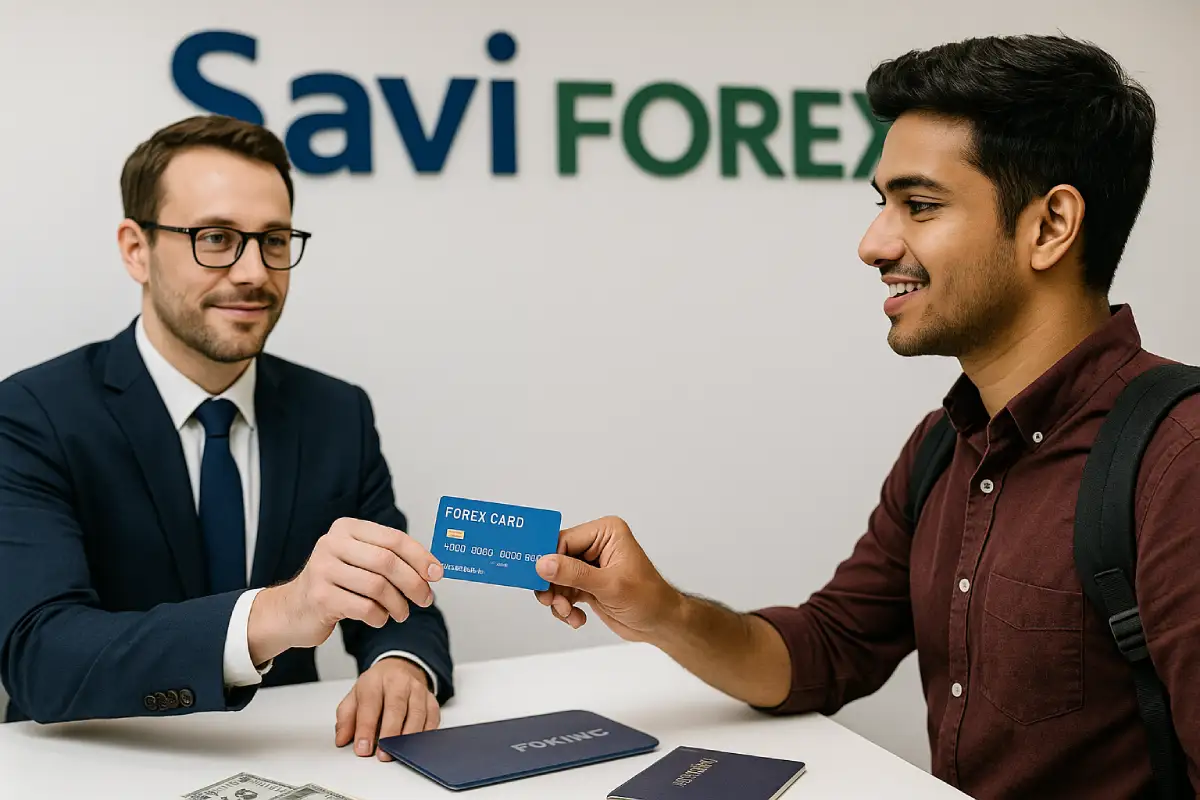
Need to exchange currency or need a visa overseas? Explore more of our services:
Get in touch today to choose the best financial tool for your travel journey!




